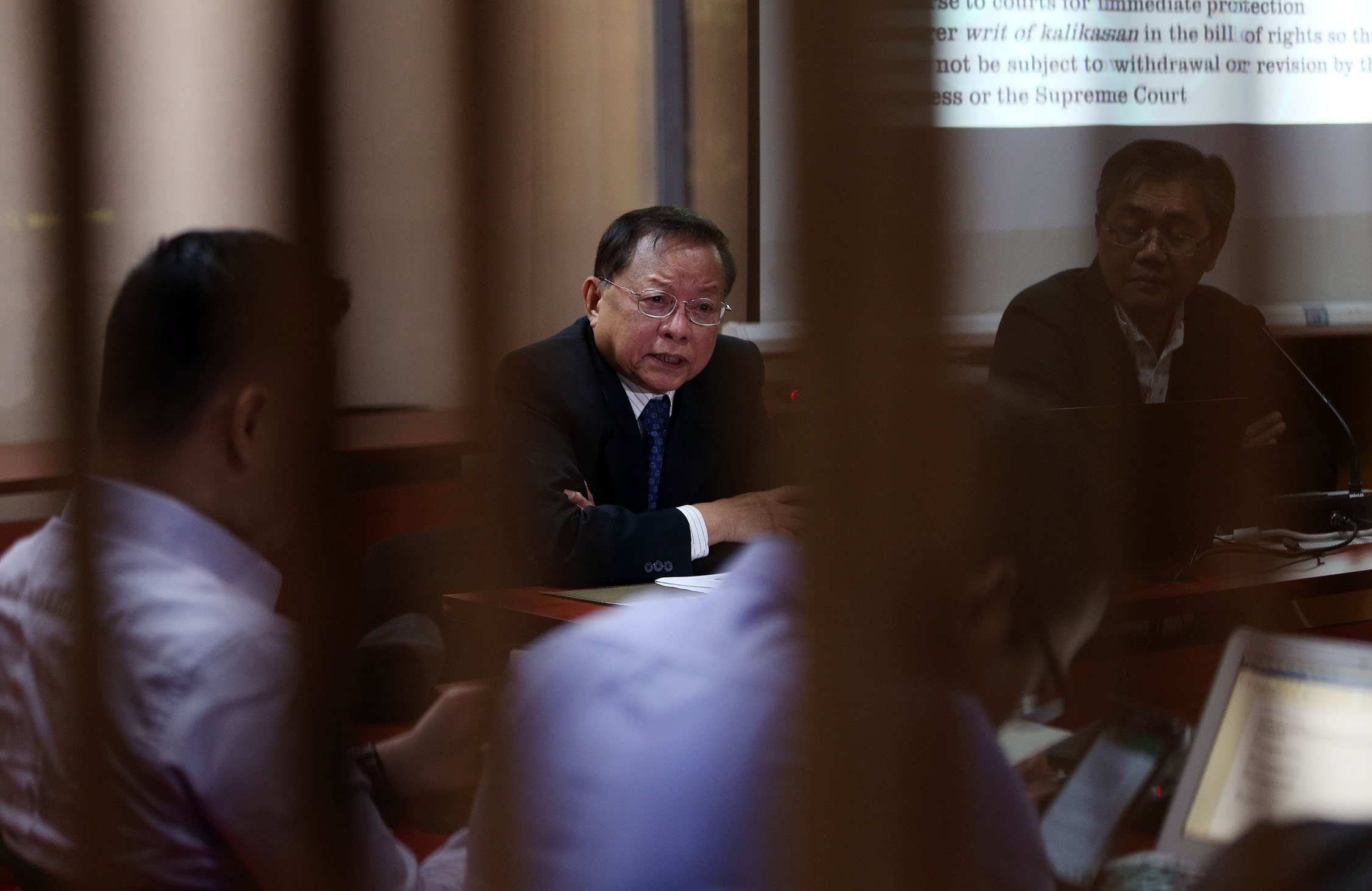Con-com eyeing JBC revamp

Former Supreme Court Chief Justice Reynato Puno answers questions from the media on environmental rights issues during ConCom briefing held at Philippine International Convention Center in Pasay City. Also in photo ConCom spokesperson Ding Generoso.
EDWIN BACASMAS
Apart from restructuring the country’s judiciary, the consultative committee (Con-Com) formed by President Duterte to review the 1987 Constitution is also looking at revamping the Judicial and Bar Council (JBC) so that it could help “better select” candidates who would sit in the high court.
According to Con-com chair and retired chief justice Reynato Puno, the revisions that they would introduce to the JBC would focus on how its performance as a screening body could be improved.
For one, Puno said they are looking at having more ex-officio members who would form part of the JBC. These may include the Ombudsman, as well as the chairpersons of the Civil Service Commission and Commission on Audit.
He pointed out that given the mandate of their respective offices, the inclusion of these officials to the JBC could help better screen candidates, particularly on such questions on qualification and integrity.
Created after the fall of the dictatorship in 1986, the JBC served to depoliticize the process of the appointment of members of the judiciary.
Article continues after this advertisementFramers of the 1987 constitution believed that it strengthens the judiciary’s independence as it prevents the President “from whimsically or arbitrarily choosing members of the courts.”
Article continues after this advertisementCurrently, it is composed of the chief justice, justice secretary, a senator and congressman who all serve as ex-officio members. The four other members who are appointed by the President are the Integrated Bar of the Philippines’ representative, a law professor, a retired member of the Supreme Court and the private sector’s representative.
To remove doubts that the JBC’s shortlisting of candidates can be influenced, especially by the President, Puno said that they are also looking at putting in a provision which would prohibit the reappointment of JBC members.
“That’s one weakness of the JBC. Those appointed by the President can be reappointed. Those who want to be reappointed can be influenced by the appointing power,” he said.
He added that to further remove any conflict, they also want the JBC, which is now under the Office of the Chief Justice, to become an attached agency of the high court with a budget of its own.
“Once we redesign the JBC, it will not be the same JBC. It will be a new council so that it can really help in the better selection, promotion and transfer of our justices,” he said.
Under the Con-com’s proposed restructuring of the judiciary, there would be three high courts under a federal form of government. Currently, it is the chief justice who heads the JBC.
Puno said that once these reforms have been implemented, the leadership of the JBC would be rotated among the heads of the three federal courts.